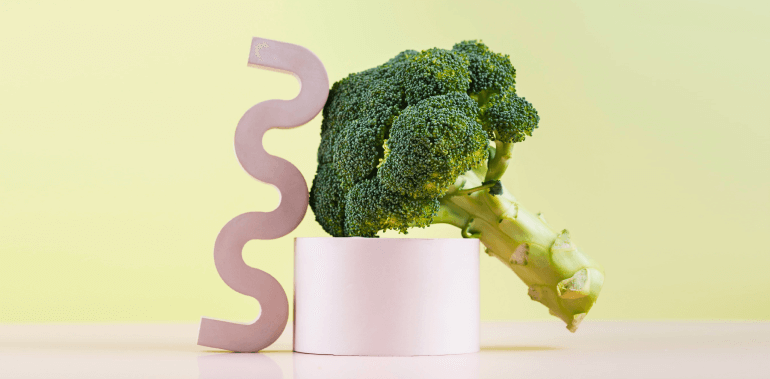Table Of Contents
The Paleo diet, known by multiple names, such as the caveman diet, stone age diet, and hunter-gatherer diet, brought back the eating patterns and food choices from the stone age era, i.e., about 2 million years ago. It maps back to the early humans in the Paleolithic era who used to consume food in its raw form before farming or any food processing technology was invented. This was the reason why the life expectancy, fertility, and metabolism of people were so good in the early times.
Our predecessors used to hunt animals and eat raw meat and vegetables, which protected them from significant heart diseases, diabetes, cancer, kidney failure, etc. This was because their diet was consistent and physical activity, such as intensive hunting, cultivating, etc., was a significant part of their daily lives. In today’s, food consumption patterns have changed completely. Nowadays, people prefer unhealthy, polished, and artificial food over natural and organic. Refined rice, sugar, salt, legumes, and fatty dairy products are a part of everyone’s diet, irrespective of age and gender. This can have severe side effects on our bodies in the long run.

If you are conscious about your health and want to consume natural and healthy food, then you have come to the right place. In this research-based article, we will talk about the paleo diet, the science behind it, its benefits, and results backed by authentic scientific studies. So keep reading!
The Do’s and Don’ts of a paleo diet
The paleo diet contains high protein, moderate fats, and medium to low carbohydrates. This helps to stay healthy and fit. It also includes high-fiber food sources to prevent the deficiency of constipation. Below is the list of foods you can eat while following a paleo diet.
- Lean meats, particularly herbivores
- Fruits Green-leafy vegetables
- Nuts and seeds
- Healthy oil, such as olive or walnut
- Fish rich in omega-3 fatty acids, such as mackerel and salmon
- Herbal tea
At the same time, it is essential to note the food you have to avoid for effective results.
- Whole grains, such as wheat, oat, barley
- Dairy products
- White potatoes
- Legumes, such as peanuts, lentils, beans
- Refined sugar and salt
- Alcohol
- Coffee
- Vegetable oils
- Highly processed foods in general
No fixed calorie count is specified with the paleo diet as long as you follow the plan correctly.
Paleo Autoimmune Diet
The autoimmune protocol (AIP) diet is for people with autoimmune disorders commonly characterized by a leaky gut. The symptoms of autoimmune disease include brain god, diarrhea, abdominal pain, inflammation around the gut, body fatigue, etc.
In a person with a healthy immune system, antibodies are produced to fight disease and protect the individual from parasites when required. However, in the case of autoimmune disorders, antibodies are produced that attack healthy cells and tissues instead of fighting infections. Thus, these people must follow a specific diet to treat this disorder.
The autoimmune protocol (AIP) diet greatly resembles the paleo diet in terms of food sources and eating habits; hence it is sometimes referred to as an extension of the paleo diet. One can follow the same diet plan for autoimmune disorders. It is divided into two phases; the elimination phase and the reintroduction phase.
In the first phase, all unhealthy food that causes inflammation in the gut is avoided, and a strict diet regime is followed. In the latter stage, small quantities of processed food are introduced into the system based on the individual’s tolerance. In this way, autoimmune disorders can be treated.
Also, read – Mindful Eating Research
Paleo diet Research
There are several studies that prove the different benefits of the paleo diet. Mentioned below are three such types of research.
- Fourteen healthy medical students followed a paleo diet for 3 weeks. At the end of the dieting regime, participants were observed to have lost 2.3 kg of weight, and their waist circumference decreased by 1.5 cm. Their systolic blood pressure also went down by 3 mmHg
- Nine healthy individuals followed a paleo diet plan for 10 days. Their calorie intake was adjusted in a way that they don’t lose weight. Controlling this variable will help to identify other significant health benefits of a paleo diet apart from weight loss.
After ten days, it was observed that their total cholesterol went down by 16%, insulin AUC went down by 39%, and diastolic blood pressure went down by 3.4 mmHg. This proves that along with weight loss, the paleo diet is also beneficial for other health issues.
- Ten healthy women who were overweight and had a BMI above 27 took a paleo diet challenge for five weeks. The aim was to observe a reduction in their liver fat, muscle fat, and insulin sensitivity.
When the results came, it was noticed that every female lost 4.5 kgs on average, and their waist circumference was reduced by 8 cm. Moreover, there was a 49% reduction in their liver fat but no reduction in muscle fat. Liver fat and muscle fat are dangerous for our metabolism; hence this study proves that the paleo diet is also beneficial for our liver.
Is the paleo diet safe?
There are multiple theories regarding the answer to this question. Some say that strictly following a paleo diet can result in deficiencies of some essential nutrients, such as calcium, vitamin D, etc., usually found in dairy products. This can cause osteoporosis or bone fractures and harmful diseases like scurvy. At the same time, as lentils and sugar, and salt are avoided, there can be a lack of instant energy and fiber in the body.
Some people also use the paleo diet as an excuse to consume more meat. However, it should be noted that high quantities of red meat can be dangerous for our health and lead to chronic diseases.
After looking at all perspectives, it can be said that following a paleo diet for too long or being rigorous can be harmful. Consequently, it is always best to consult a nutritionist or doctor before making your diet plan and only follow it as long as it is required. The Paleo diet results in short-term benefits which are clearly noticeable, such as low cholesterol levels, reduces waist size, etc. Therefore, while following a paleo diet, measure your progress regularly.
Also, read – Foods That Boost Serotonin and Dopamine
Benefits of the Paleo diet
Listed below are some pros of following a paleo diet. In ideal cases, we recommend following a diet regime for 30 days and noticing changes in your body and sleeping patterns. If everything is working out perfectly, then you can go back to your everyday lives and slowly start the intake of other foods as well. But make sure they are organic, healthy, and natural.
- Low blood pressure
- Optimal blood sugar levels
- Improved insulin sensitivity
- Weight loss
- Increase life expectancy
- Lean muscles
- Helps cure insomnia
- Provides detoxing effects
Conclusion
We hope this article gave you useful insights into the paleo diet and cleared some common misconceptions. If you want to lose weight or eat healthily, then do give the paleo diet a try. However, it is important to note that the paleo diet can not be claimed to be better than any other diet, such as Mediterranean or keto. All diet regimes are different and have unique characteristics, pros, and cons. It is best to see a nutritionist and do your research before starting any diet plan.
References
- https://www.medicalnewstoday.com/articles/paleo-diet-is-there-any-evidence-that-it-benefits-health
- https://www.hsph.harvard.edu/nutritionsource/healthy-weight/diet-reviews/paleo-diet/
- https://www.mayoclinic.org/healthy-lifestyle/nutrition-and-healthy-eating/in-depth/paleo-diet/art-20111182
- https://www.healthline.com/nutrition/is-rice-paleo
- https://www.healthline.com/nutrition/aip-diet-autoimmune-protocol-diet#bottom-line
- https://nunm.edu/2019/04/paleo-diet/
- https://paleogrubs.com/paleo-benefits
Whitney Holcombe is a freelance writer with a passion for health and fitness. She’s a published author and former health and fitness guest blogger for SeventeenMagazine.com. Whitney has years of experience writing about health related topics as well as firsthand experience in weight loss. She’s a firm advocate of a balanced diet and exercise for leading a healthy lifestyle.









